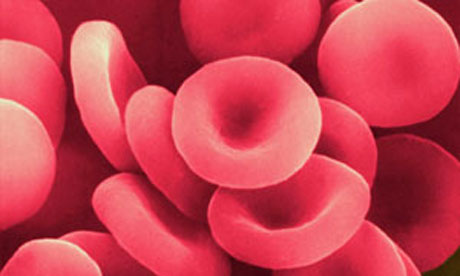
Only 4% to 6% of the population gives the blood that the rest of us, if involved in a car accident, would rely on. June 14th is World Blood Donor day – a great time for new donors to step forward, so here are the facts.
How much blood gets taken?
Around 450ml to 500ml – including samples for testing.
What does your blood get tested for and do you get the results?
HIV, hepatitis B and hepatitis C, human T-lymphotropic virus and syphilis. The tests are done automatically to make sure blood is safe. If you have been to a country where malaria and trypanosmiasis are prevalent, your blood will be tested for blood-borne diseases such as sleeping sickness. You will be told if your blood is infected by phone or letter.
Who can give blood?
Anyone who is fit and well and over the age of 17 – as long as they are not pregnant, weigh over 50kg and have not had a tattoo or piercing, or had jaundice in the past six months, or travelled to an area which has malaria in the past six months. However, the National Blood Service has a list of countries and the time of the year when health risks exist. So, for instance, if you had been to the United States in September, you would be asked to come back in 28 days if you were still well because West Nile virus season falls between May and November. New donors must be 65 years of age or under. You should also only give blood once every 16 weeks. [See footnote.]
What is most blood used for?
To top up people who are anaemic, for those who have lost blood during orthopaedic surgery and to treat people who have blood disorders.
Why do some people feel faint after giving blood and why does weight matter?
Dr Moji Gesindo, a consultant haematologist at Leeds Blood Centre, says that the average person can lose 15% of their blood volume without fainting. We have five to six litres of blood in our bodies depending on how big we are. If you don't weigh enough then you could faint and so you need to be 50kg. Fainting is a physiological and sometimes a psychological process (so more likely among the squeamish). Eat beforehand and you will be offered a drink (of around half a litre) which research shows will sit in your stomach and keep your blood pressure up while you are having your blood taken.
What about if I am taking medication?
The blood transfused will contain very little of any medication. But you should say what you are taking. Some painkillers can stop blood clotting so you need to be off them for seven days before donating. If you are taking tablets for diabetes or high blood pressure you can give blood as long as you have been on the same dose for four weeks and are stable. If you are on antibiotics come back a week after finishing them, so won't feel rough after giving blood.
How long does blood last for?
Thirty-five days in a fridge at 4°C. Some blood from very rare blood groups has to be frozen to keep for longer. The service needs 7,000 donors a day to keep up with demand.
Do you still get tea and biscuits?
Yes.
• The following correction was published in the Guardian on 10 June 2011. Who can give blood? asked a Q&A – and summarised the answer as: Anyone who is fit and well and over the age of 17 – as long as they are not pregnant, do not weigh less than 50kg and have not had a tattoo or piercing, or had jaundice in the past six months. Also mentioned were some restrictions if a potential donor had lately travelled to certain parts of the world, or was taking certain types of medication. However, owing to some miscommunication, other significant exclusions were unintentionally omitted. The NHS Blood and Transplant authority's explanatory document says, for instance, you should never give blood if you have ever had syphilis, HTLV (Human T‑lymphotropic virus), or hepatitis B or C; you're a man who's had sex with another man, even using a condom; you've ever worked as a prostitute; you've ever injected yourself with drugs.

